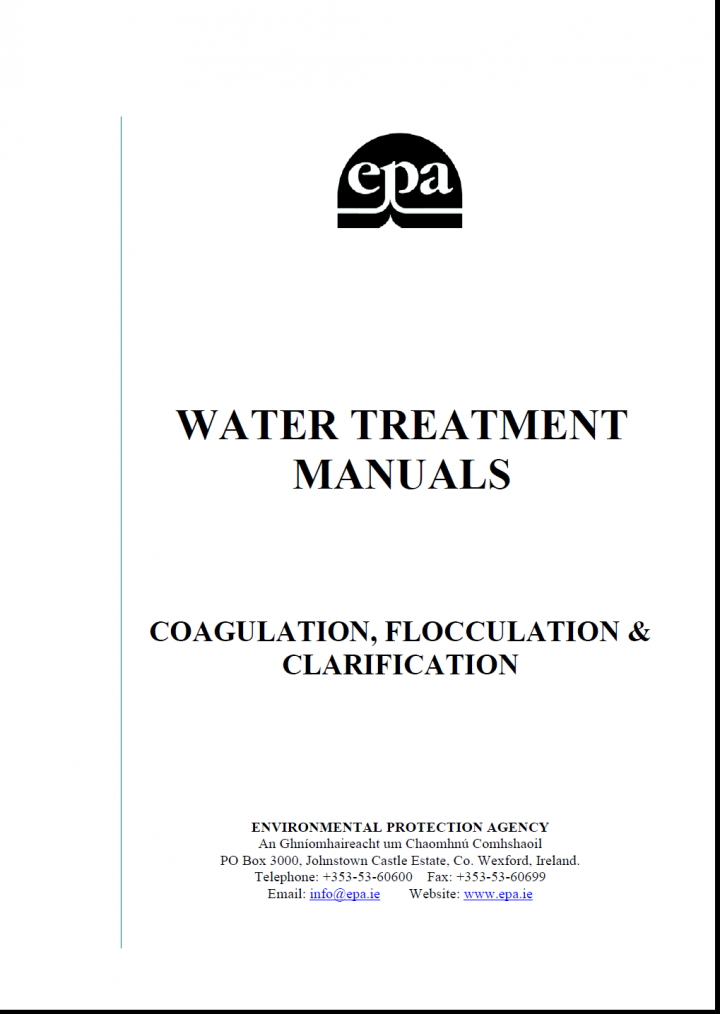Water Treatment Manuals - Coagulation, Flocculation & Clarification
Bourke, N., Carty, G., O’Leary, G., Crowe, M., Page, D (2002)

Published in: 2002
Pages: 104
Publisher:
Environmental Protection Agency
Author:
Bourke, N., Carty, G., O’Leary, G., Crowe, M., Page, D
Uploaded by:
SuSanA Admin
Partner profile:
common upload
1625 Views
55 Downloads
Absolutely pure water is rarely, if ever, found in nature. The impurities occur in three progressively finer states - suspended, colloidal and dissolved matter. Different methods of treatment are required for their removal or
reduction to acceptable limits. Coagulation, Flocculation and Clarification, as well as Filtration are
interdependent stages of the solids separationphase of water treatment.
Failure or inadequacy in any of the stages will have adverse effects on the subsequent stages and may result in the production of water with excessive turbidity and other undesirable qualities. Thus, chemical dosing which is not optimal means that the conditions for coagulation are not the optimum; the floc formed may be unsuitable for the method of clarification in use, is not removed efficiently and passes on to the filters where it may break through to appear as turbidity in the final water or seriously reduce the length of filter run.
Bibliographic information
Bourke, N., Carty, G., O’Leary, G., Crowe, M., Page, D (2002). Water Treatment Manuals - Coagulation, Flocculation & Clarification. Environmental Protection Agency
Filter tags
English Europe & Central Asia Guidelines and manuals Politicians and local decision makers Practitioners















